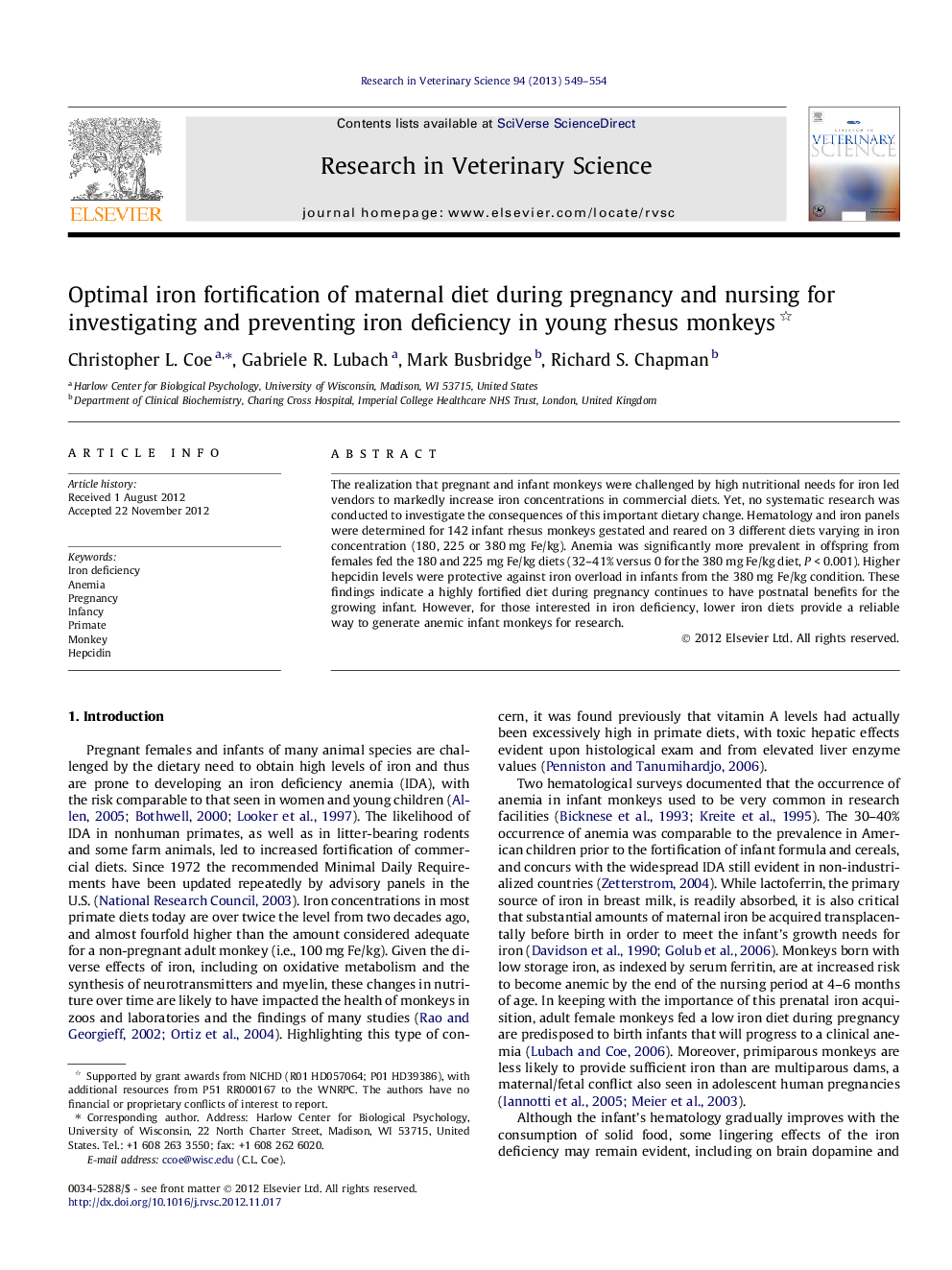| Article ID | Journal | Published Year | Pages | File Type |
|---|---|---|---|---|
| 5794910 | Research in Veterinary Science | 2013 | 6 Pages |
The realization that pregnant and infant monkeys were challenged by high nutritional needs for iron led vendors to markedly increase iron concentrations in commercial diets. Yet, no systematic research was conducted to investigate the consequences of this important dietary change. Hematology and iron panels were determined for 142 infant rhesus monkeys gestated and reared on 3 different diets varying in iron concentration (180, 225 or 380Â mg Fe/kg). Anemia was significantly more prevalent in offspring from females fed the 180 and 225Â mg Fe/kg diets (32-41% versus 0 for the 380Â mg Fe/kg diet, PÂ <Â 0.001). Higher hepcidin levels were protective against iron overload in infants from the 380Â mg Fe/kg condition. These findings indicate a highly fortified diet during pregnancy continues to have postnatal benefits for the growing infant. However, for those interested in iron deficiency, lower iron diets provide a reliable way to generate anemic infant monkeys for research.
